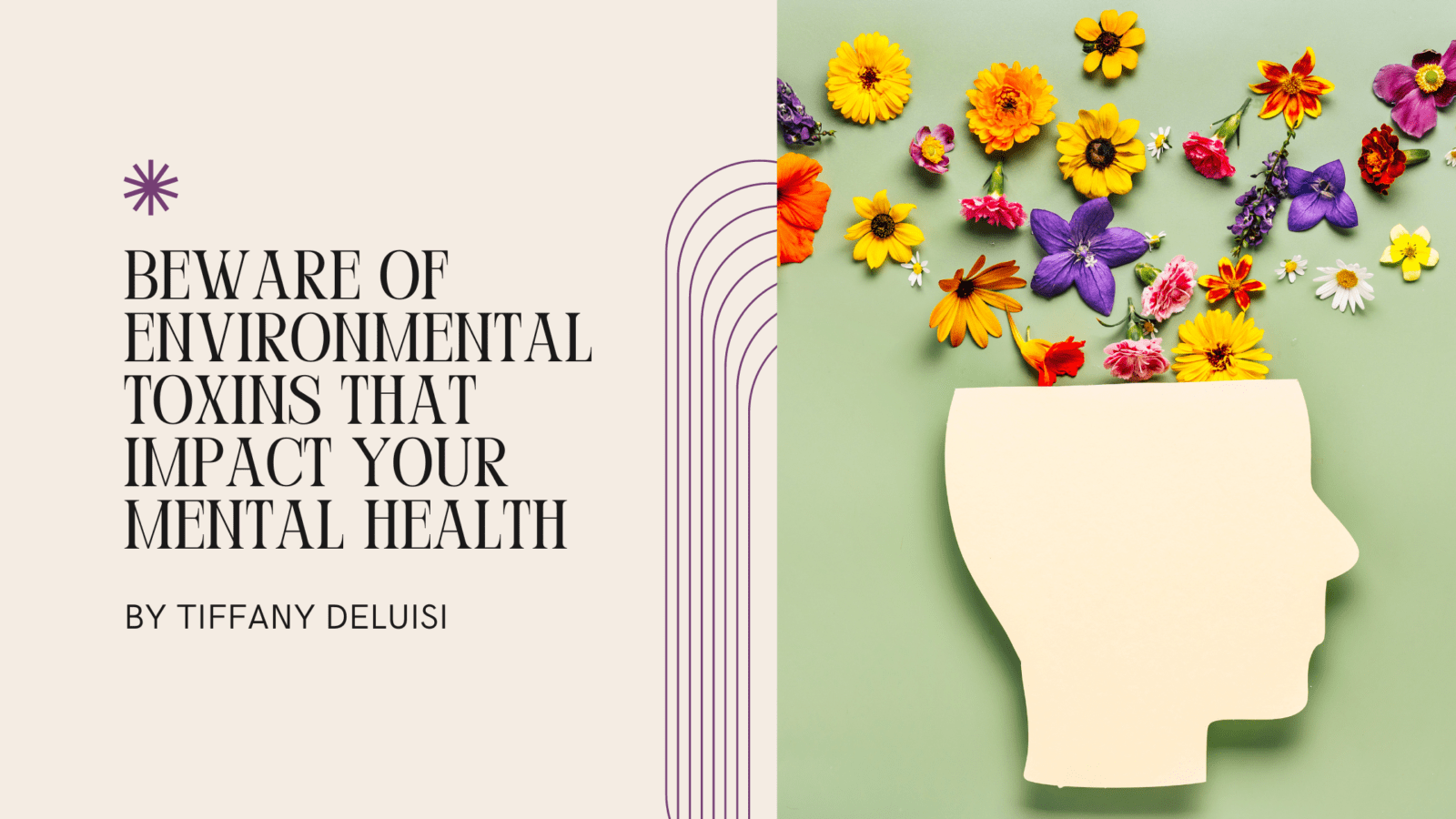Beware of Environmental Toxins That Impact Your Mental Health

Environmental toxins are all around us, and unfortunately, many of them can have a negative impact on our health. In this newsletter, we’ll be discussing six ways that environmental toxins may be impacting your brain and nervous system.
Neurotoxicity: Many environmental toxins are known to have neurotoxic effects, meaning they can damage or kill nerve cells in the brain and nervous system. Examples of neurotoxic toxins include lead, mercury, and pesticides.
Oxidative Stress: Exposure to environmental toxins can also cause oxidative stress, which occurs when there is an imbalance between the production of reactive oxygen species (ROS) and the body’s ability to detoxify them.
Inflammation: Exposure to environmental toxins can trigger an inflammatory response in the brain and nervous system, leading to damage to nerve cells and impaired brain function. Examples include air pollutants, mold, and some food additives and preservatives.
Impaired Blood-Brain Barrier: The blood-brain barrier is a protective barrier that separates the brain and nervous system from the rest of the body. Exposure to environmental toxins can impair the function of the blood-brain barrier, allowing toxins to enter the brain and nervous system and cause damage.
Disruption of Neurotransmitters: Some environmental toxins can interfere with the production, release, or uptake of neurotransmitters in the brain, leading to changes in brain function and mood. Examples include PCBs and industrial chemicals.
Alteration of Hormones: Exposure to certain environmental toxins can disrupt hormone levels in the body, which can have an impact on brain and nervous system function. Examples of toxins that can alter hormones include BPA and some pesticides and industrial chemicals.
While it’s impossible to completely avoid all environmental toxins, there are steps you can take to minimize your exposure. Choosing organic whenever possible, using non-toxic cleaning products, and using hygiene products with non-toxic ingredients are just a few examples.
I offer personalized support to help you optimize your brain health and minimize your exposure to toxins. Curious to know more? Sign up for a free discovery call.
FEATURED SUPPLEMENT OF THE WEEK

Vitamin D
Vitamin D is involved in the regulation of several neurotransmitters, including serotonin, which plays a key role in regulating mood. Vitamin D deficiency has also been linked to changes in brain structure and function that may contribute to mood disorders. As we are heading into summer we are able to receive more Vitamin D from the sun. However, many still find that they need to supplement throughout the summer months.
My favorite form of Vitamin D is Solle LongeviD because it’s the only 100% plant based Vitamin D supplement that also contains adaptogens. Learn more HERE!
*take $10 off your first order of $35 or more with code TDELUISI at checkout!







